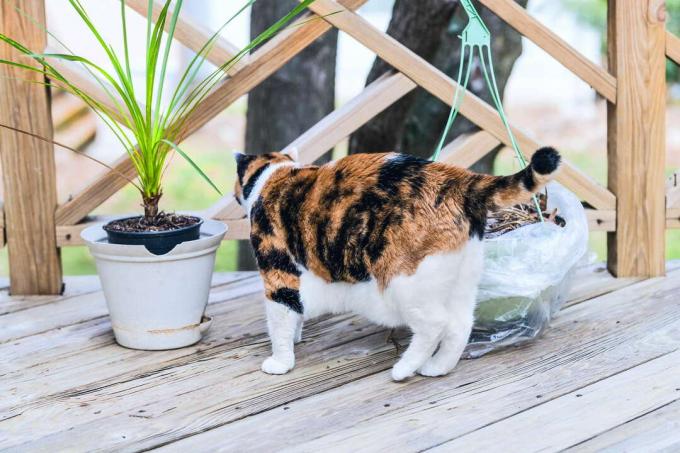A dragon tree can be found in almost every household. But rumors often circulate that it is poisonous. Is that correct?

Of the Dragon tree (Dracaena) is a popular houseplant that has found its way into many households. Despite its ubiquity, the dragon tree is said to be poisonous for both humans and animals. We clarify whether there is really something to this rumor or whether it is just an old wives' tale.
Dragon tree: poisonous for children and adults?
Like most other plants, the dragon tree contains saponins. Saponins are secondary plant substances that we consume every day, be it through tomatoes, lettuce, peas or spinach. We do not feel any adverse health effects because the saponins are only contained there in relatively small quantities.
However, the red sap of the dragon tree contains such a high concentration of saponins that caution is called for. For adults in a stable health condition, there is no great danger as long as no large quantities of leaves or other parts of plants are consumed. In any case, absorption (whether intentionally or not) is made more difficult by the extremely bitter taste, which further lowers the risk for adults.
However, there is a higher risk potential for small children. Their sense of taste is not yet fully developed and therefore there is not as much inhibition threshold as in adults. In addition, the oral ingestion of the dragon tree plant parts leads to symptoms more quickly due to the lower body weight of the little ones. The overdose of saponins can lead to vomiting, increased salivation, nausea or even bloody diarrhea. If these symptoms occur, a doctor should be consulted as soon as possible.

Even if you have set up your dragon tree out of the reach of children, there is a risk that parts of the plant that have fallen down can be swallowed. We therefore strongly advise against cultivating a dragon tree if there are small children in the household.
Tip: If you suspect poisoning, take a leaf of your dragon tree with you to the doctor so that he can check which plant it is and take the appropriate countermeasures.
Drachenbaum: Asthma sufferers and allergy sufferers
Not only the oral ingestion of the plant parts of the dragon tree can have health consequences. In the case of allergy sufferers and asthmatics, discomfort can be caused by skin contact or the inhalation of plant vapors. The following symptoms can occur:
- Reddening of skin areas on direct contact with leaves or plant sap
- Difficulty breathing from exhalations in asthmatics
- In interaction with dry and dusty air, cramps in the respiratory muscles can occur

Dragon tree: poisonous for cats and dogs?
The saponins of the dragon tree are poisonous in high doses not only for humans, dogs, cats and all other domestic animals can also be affected by the poisoning by a dragon tree. Even if the animals are healthy and fit, there is a risk of irritation of the mucous membrane or the like after a single contact. However, should your pet nibble on your dragon tree, there should be no acute danger. With frequent and protracted eating, however, saponins can accumulate in the blood, which affects the number of red blood cells. The symptoms are similar to those in the toddler:
- cramps
- Circulatory problems
- Increased salivation
- Vomiting and (possibly bloody) diarrhea

There are some simple tips and tricks to keep your pet off the beaten path Dracaena keep away. For one thing, you can of course refrain from cultivating the dragon tree in your own home, but you usually don't have to take such radical measures. Here are a few tips to help prevent poisoning your pet.
- Provide employment for yours Dracaena seems uninteresting
- Set up a scratching post for your cats
- Regular walks and games ensure balanced behavior in dogs
If, despite the measures mentioned, an incident should nevertheless occur, take your darling to the vet immediately. Outside of the normal opening times, an emergency veterinary service is always available to provide advice and assistance.
by the way: Despite saponin, which is relatively poisonous for humans and animals, it has useful properties for detergent production. The washing-active substances that can be obtained from saponin are found in many biological detergents and make everyday life easier for us.
So if you keep a few points in mind, your dragon tree will not pose any danger. Like your Caring for the dragon tree properly, you can find out in our special article.
